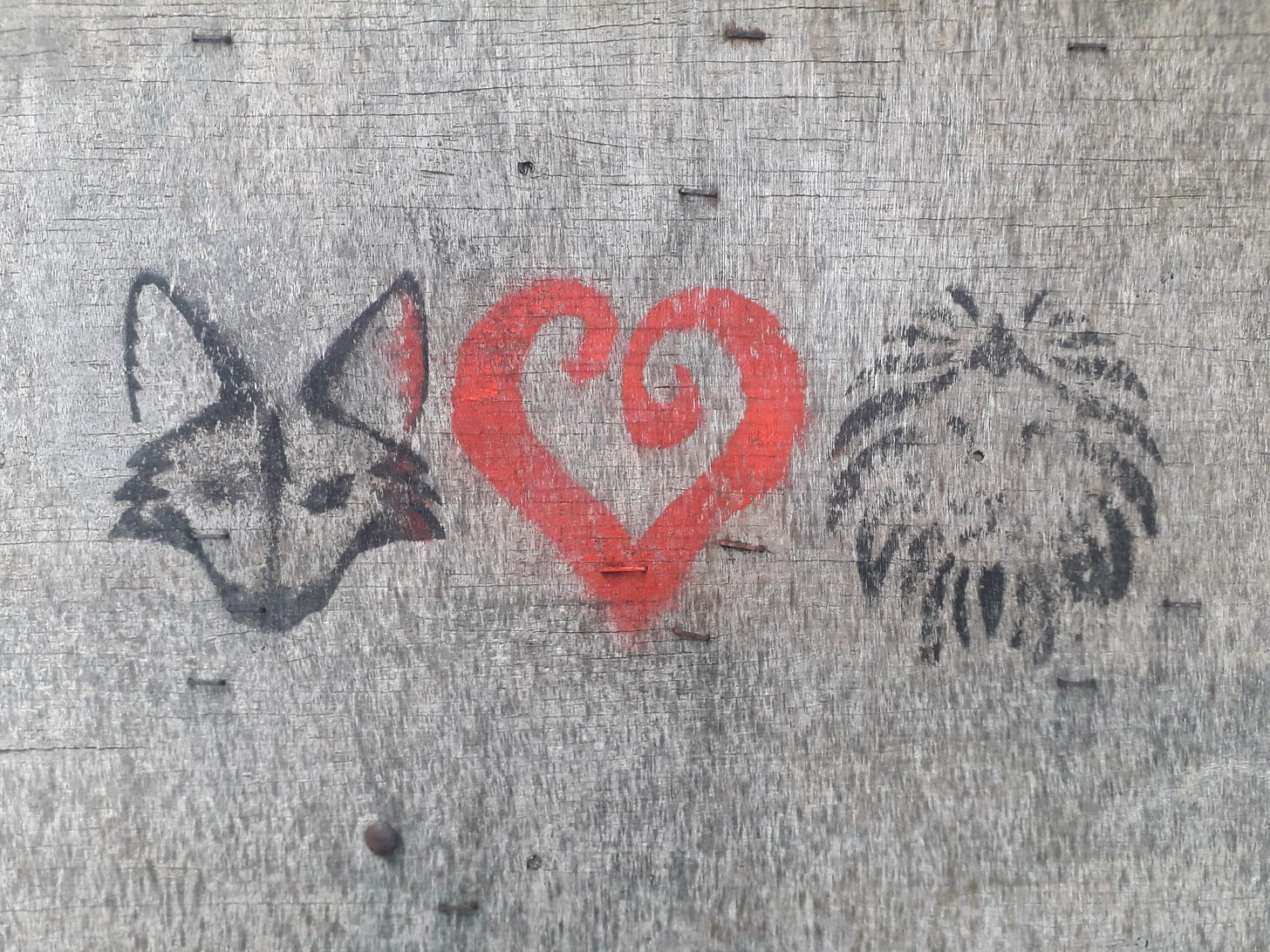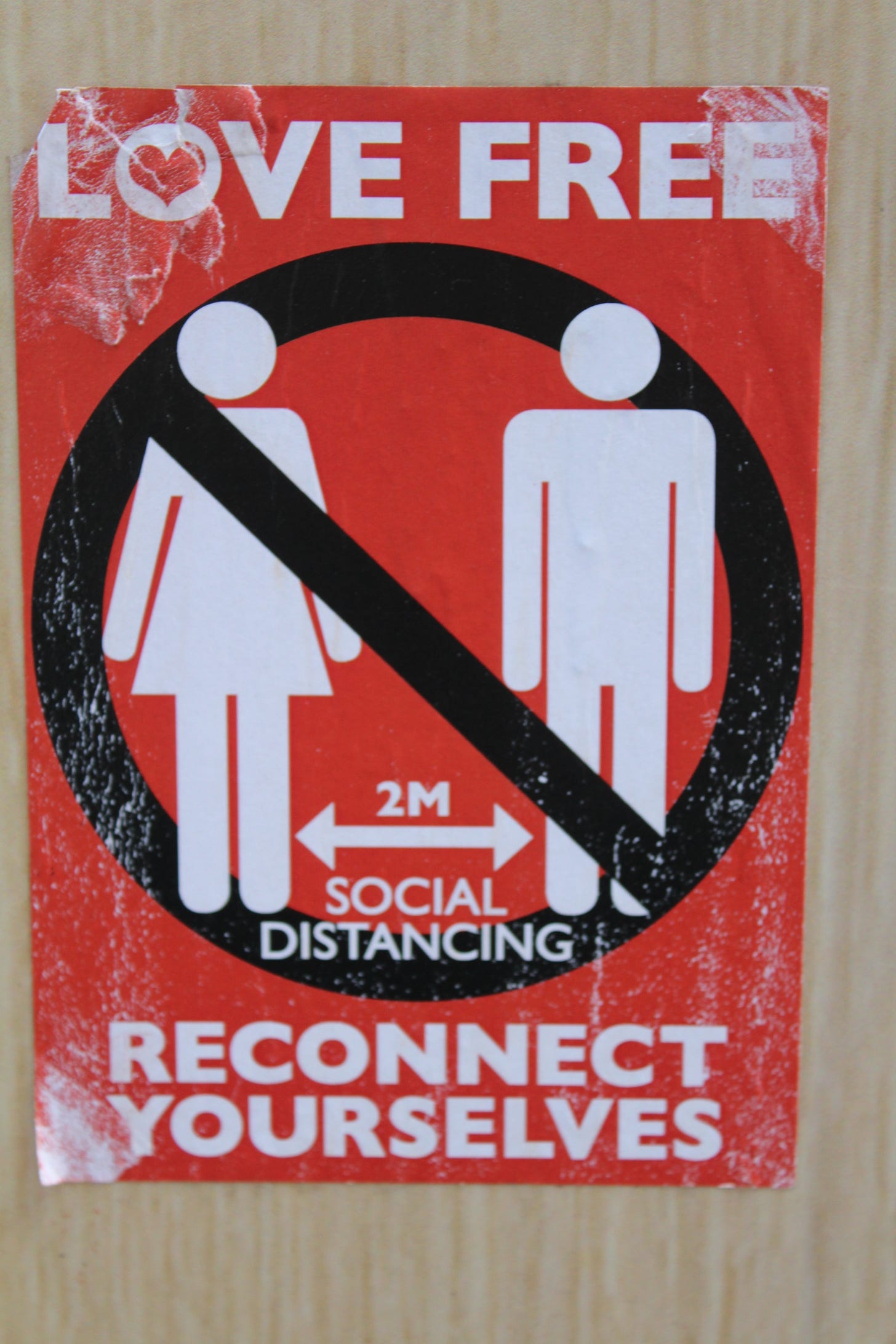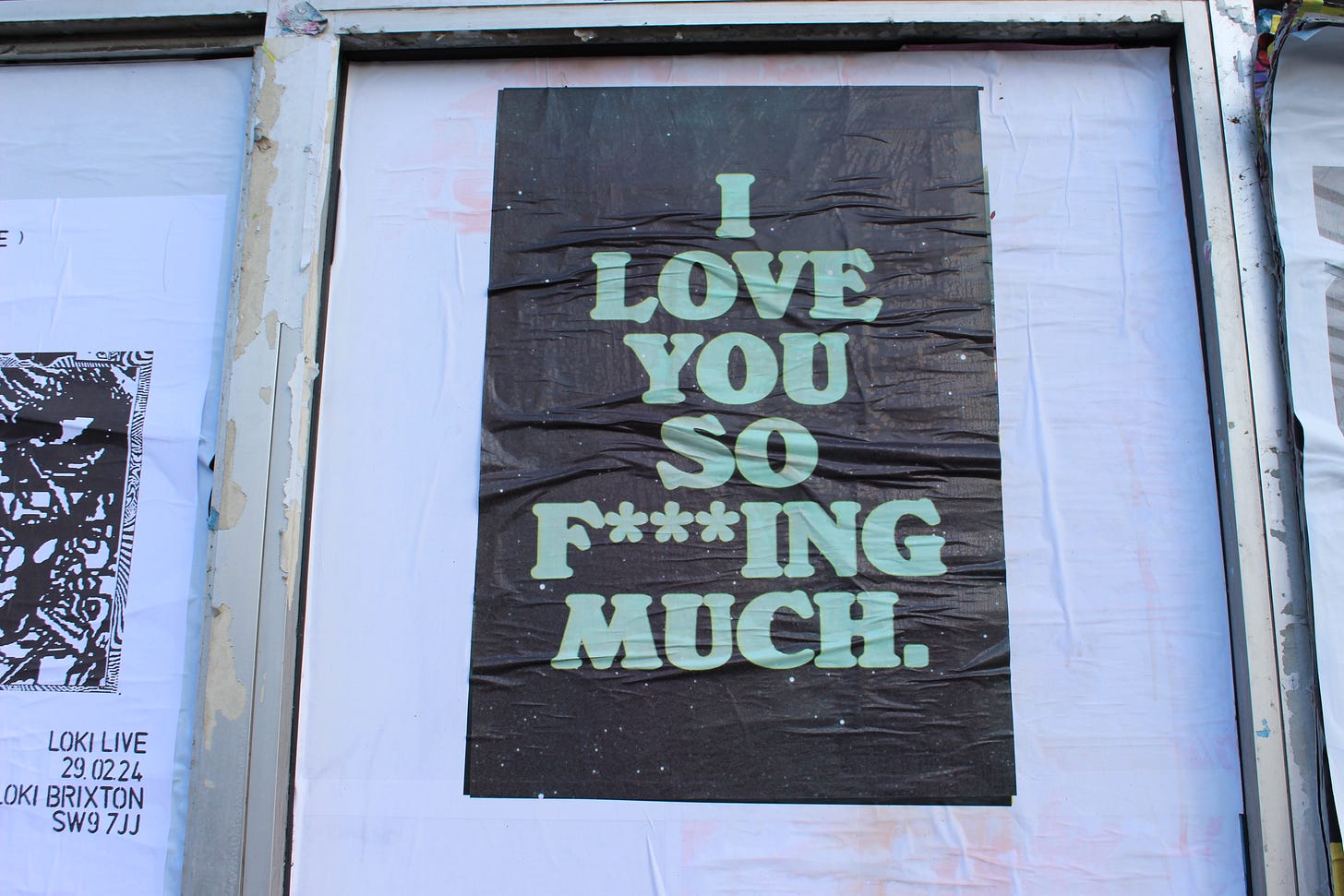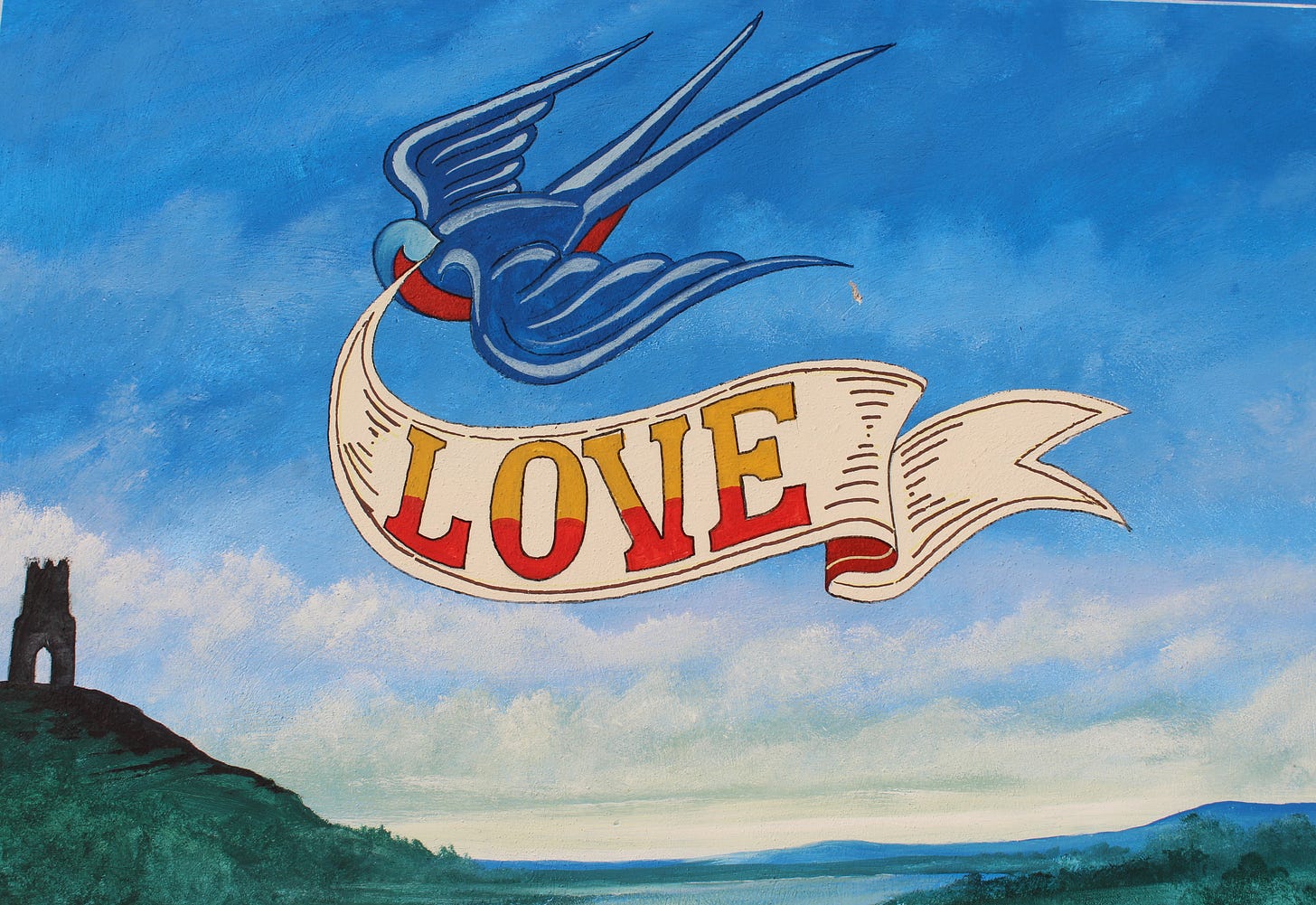Being hated is a lot easier than being loved.
If someone detests you, or acts as if they do, if the hatred isn’t reciprocated on your part, you don’t have to do anything. Hatred creates no bonds, no duties and—if you ignore it—little meaning. Hatred might be something more than an absence (of love, or respect, say) to the person who feels it, but if it doesn’t matter to you, the hated, it might as well not exist. This hits a hard limit of course when someone decides that it better you not exist and takes action to try to manufacture that outcome.
Hatred generally appears as a kind of projected chaos, a dark shadow cast by the disordered being of others. From a certain angle, the whole world seems overcast. What if we could clear these dark clouds and light up the whole world? The attractive idea that hate always lies “just over there” accounts for much of the hysteria evident in what we might call the emotional progressive: if only everyone could feel the compassion I feel. I can and must hate those who do not appear to, up to and including celebrating their death. Everyone is trying to work out what the past decade has meant; to what extent this behaviour is just how it always is, or whether there is something novel. Did ancient libraries strain under the weight of manuscripts of denunciation, inserted surreptitiously into ancient books, or did condemnation circulate in the ether—death stares in the market, a barely concealed damnation buried in the weekly sermon?
It has crossed my mind since I wrote On Being Hated that perhaps it is not hatred exactly that people usually feel. There is something like scorn, or contempt or mockery which doesn’t exactly rise to the level of hatred, and might be felt as more of a relief to the person exercising it: at least it is not me being attacked/laughed at, phew. I think if you said to such a person: “You hate such-and-such a person”, the supposed hater might object: “Oh, I don’t hate them, I just find them annoying/stupid/idiotic”.
To ascribe something as powerful as hatred to someone who might well have engaged in negativity but who doesn’t want to be reduced to it often induces this kind of squirming: well, I don’t really hate them, I just don’t like them very much. Hatred is in this sense contingent, fleeting and the name of the “hated” somewhat arbitrary: it could have been another, it will be another in the future. The aspecific hatred of the mob—specific only insofar as a name is given to the hated, but aspecific in the hatred itself, which, like anxiety, seeks any target. The game of trying not to become the target is a status racket: if I keep quiet and go along with what people on my side say, it won’t be me.
Even a person who decides to make it their life’s mission to ruin you may not exactly hate you, so much as use your name to take out whatever maims them as a character at a distance from you. While it is uncanny in the extreme to be, say, digitally stalked, one also feels like a cardboard cutout: it’s not really me you’re after, you just want me to embody all the things you don’t like so that you don’t find them in yourself.
True hatred is, though, very rare (let us hope).
Love, on the other hand is, despite everything, everywhere. It is hard to be loved, because it brings with it a cascade of bonds: wanting the best for someone frequently involves suffering, awkward conversations and risk. In an era of fleeting, mediated connections, love, particularly that outside of family bonds (but I didn’t choose these!), starts to appear as a burden it would be easier to avoid. The self doesn’t love (and despite the best efforts of the past hundred years, the self doesn’t exist), but relations do. Love is in the gaps. In marriage, for example, one loves the covenant itself: a triangle, not a straight line, and certainly not a circle.
There are those who seek new families, who cut all ties. But the desire for a family remains, nevertheless. There are very few true loners. But loving and being loved requires humility, patience, and other virtues most at odds with immediacy and desire. This realisation appears to be playing out on a global scale, as men and women seek segregation: no higher purpose, no reciprocity, no recognition of complementarity. No time.
Being loved means that one has to become worthy of love. It means thinking from the standpoint of someone else, eternally. It is easier to imagine oneself unworthy and find a self-destructive comfort in failure. Nihilism is another word for defeat. It is always easier to destroy than to maintain. Unrequited love, in this regard, is the combine harvester of masochism: the blades are sharp, but they take a long time to become blunt when all they have to process is hay-bales. No one will ever love me. I would not wish unrequited love on my worst enemy. And perhaps loving your enemy involves, at minimum, not wishing harm on them. It means more than this, though, it has to.
At dinner, someone asks me what it means to love your enemy. I answer humanistically, at first: loving what is human in them; feeling pity and compassion for their pain, wishing that they can find a way out of their bad feeling. This is inadequate, from my point of view, and I try again: remembering that everyone has a soul, and that we are all God’s creatures. A non-Christian companion scoffs. It can’t just be pity. It can’t just be psychologically protecting oneself from responding in kind by hating back.
But after all, aren’t we surrounded by the imperative to be kind, to just be a good person and other emotionally progressive imperatives. But what of justice here? What of punishment being in some cases the merciful and righteous option? The instruction to forgive without acknowledgement of harm caused, or without an apology, cannot, and does not work: deprive someone of responsibility and they are little different from a pebble. And yet we see this everywhere in the inverted world: they couldn’t help it. Acts once treated with severe condemnation are treated lightly; opinions without actions harshly punished. Symbolic “crimes” weigh more than material ones. A collective love of the city, of the social body, would instead recognise the triangle: a smashed world of individuals, hierarchised according not to morality but by identity creates excuses and draws distinctions between those who are capable of choosing wrongly, and those who merely act. But we all have a choice: it is dehumanising in the extreme to pretend that some people don’t. A justice system predicated on love would understand this.
Into the concept of love we pour all kinds of things until the container breaks. We fail to differentiate (as the Greeks, for example, did) between love of family, love of God, erotic love, love of the city, and so on). In the void echo screams of need, want, a desire for recognition, for understanding and many other things besides. In friendship, all the more interesting because of its ambiguity, we struggle with asymmetry of affection, with the fear (and reality) of betrayal, of understanding the relationship between contingency, pleasure, mutual benefit and the pursuit of the good. Perhaps even less than in marriage do we understand the nature of our friendships, and what they require. Amity and temporary romantic or sexual encounters all blur into one: I don’t think we’re on the same page; I don’t like your politics; you pissed me off.
I sometimes think of my friends, philosophers, who died at their own hand: they were loved, they are loved. But something failed, some sense that love was real, or enough was missing. Spinoza suggests that suicide always comes from outside, and without: one is overcome by bad forces, or energies, to render the point in a more spiritual register. Being is good, but it is not always kind. It is hard to accept that one is loved, by God, by your family, by friends, or even on occasion by strangers. The allure of homo duvet, the comfort-seeking modern human, is at odds with anything that smacks of difficulty, of ebbs and flows. But we do love, and we want to love, and we are loved, even, or especially, when we might imagine that we are unworthy of such a thing. As contemporary life more and more resembles a zero sum game played by suspicious actors, love’s infinity recedes from view. But it never ends. It never ends.






